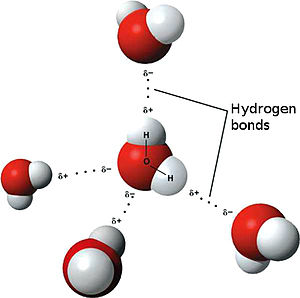Image via Wikipedia
Last week I mentioned that the number one creative skill you need to master is the ability to free associate, to make connections between dissimilar things. I just stumbled into Ellen Di Resta’s post on the innovator’s perception where she probes further into the concept to which I left a comment:
Hello Ellen,
You’re right. I think it comes down to people’s ‘associative barriers’, or the ability to make new connection between dissimilar things.
For example if I say ‘car’ someone might say ‘tire’ because our minds make that connection automatically because we know it exists. But how about if I say ‘granola’ and someone else says ‘water’, which makes no sense to some of us but if you put the two together that person might see ‘river’.
So in other words when someone sees something different out of the unknown it’s because that person has very low associative barriers.
One of the reasons why most of us can’t make insightful new connections between dissimilar things is because we have ‘high associative barriers’. A person with high associative barriers will quickly arrive at conclusions when confronted with a problem since their thinking is more focused. He or she will recall how the problem has been handled in the past or how others in similar situations solved it. A person with low associative barriers, on the other hand, may think to connect ideas or concepts that have very little basis in past experience, or that cannot easily be traced logically.
The question, then, is, how do we remove these barriers?
Understand why
If you’re on the ‘high barrier’ side, it has nothing to do with your parent’s genes, it has to do with with how our brains evolve. Our brains evolve to find order in things, grouping concepts together and finding structure in the environment surrounding it.
Be aware and destroy
I think they key is to be aware of this, and then systematically break down those barriers by exposing yourself to new stuff, like traveling to new places, talking to people whom you have nothing in common with, reading about stuff outside of your interests, and questioning your own assumptions as to how you think the world works.
The internet provides us with all this and more, and right at the center of it is other people (social media ring a bell?). If you don’t have a Twitter account, get one right now. You’re going to want to follow some people so go to Listorious and instead of looking for people that fit your interests do the opposite and follow dissimilar people (Ex. if you’re into art, follow people in science!) and see what they’re sharing and engage them.
Combine both
If you take two people — one with high barriers, the other with low barriers — and you give them the same information about a problem, they’ll approach the problem in a completely different way. So the objective is to be able to achieve ‘whole brain thinking’, where we can shift from divergent to convergent thinking in the flip of a switch. The more fluid our thinking is the better we’ll be equipped to adapt and make sense of things that look like a puzzle with no shape of form.
What would you add?








